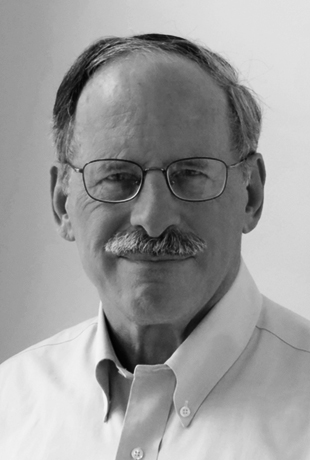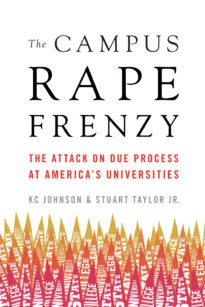Free shipping on all orders over $40
Stuart Taylor, Jr.

This author may be available for media and speaking engagements.
Request This AuthorSTUART TAYLOR, JR. is an author and freelance writer focusing on legal and policy issues and a National Journal contributing editor. He has coauthored two critically acclaimed books. In 2012, Richard Sander and Taylor wrote Mismatch: How Affirmative Action Hurts Students It’s Intended to Help, and Why Universities Won’t Admit It. In 2007, Taylor and KC Johnson wrote Until Proven Innocent: Political Correctness and the Shameful Injustices of the Duke Lacrosse Rape Fraud.
Johnson and Taylor have now written a book on the current campus sexual assault panic, to be published in January by Encounter Books. Sander and Taylor have also filed amicus briefs in Supreme Court cases involving admissions preferences.
Since 1980, Taylor has done reporting and commentary about issues ranging from the biggest Supreme Court cases to race, voting rights, mindlessly excessive criminal penalties, the death penalty, war powers, gerrymandering, guns, polarization, the perceived tensions between civil liberties and national security, torture, campaign finance, education, health care, impeachment, and a wide range of other issues. He has often been called one of the nation’s leading legal journalists and has been known for breaking with both liberal and conservative conventional wisdom.
Taylor was a reporter for The New York Times from 1980-1988, covering legal affairs and then the Supreme Court; he wrote commentaries and long features for The American Lawyer, Legal Times and their affiliates from 1989-1997, and for National Journal and Newsweek from 1998 through 2010; he has written (less often) on a freelance basis for numerous publications since 2010. He has been published by The Atlantic, The New Republic, National Review, RealClearPolitics.com, Slate, The Daily Beast, Harper’s, Reader’s Digest, and other magazines, plus op-eds for The Washington Post, The New York Times, The Wall Street Journal, The Los Angeles Times, and USA Today. He has been interviewed on all major television and radio networks. He taught “Law and the News Media” at Stanford Law School in 2011 and 2012 and practices law on occasion.
Taylor graduated from Princeton University in 1970 with an A.B. in History. After working as a reporter for the Baltimore Evening Sun and Sun from 1971-1974, he moved to Harvard Law School, was a Harvard Law Review note editor, and graduated in 1977 at the top of his class, with high honors. He also won a Frederick Sheldon Traveling Fellowship and traveled around the world in 1977-1978 while studying freedom of the press in the United Kingdom and Kenya.
Taylor practiced law with Wilmer, Cutler & Pickering, in Washington, D.C., from 1978-1980 before returning to journalism in 1980 by joining the Washington Bureau of The New York Times.
Among those who have praised Mismatch are Judge Richard Posner (“the best researched and most convincing analysis ever done of affirmative action in higher education”) and columnists Clarence Page (this book has “caused me to think again” about the affirmative action mismatch problem) and George Will (“This book probably will make constitutional history”).
Taylor’s journalism honors include the 2009 Northern California Innocence Project Media Award for his work on the Duke lacrosse rape fraud; a 2002 National Headliner Award for best special magazine column on one subject; and a share of The American Lawyer’s National Magazine Award for a March 1990 special issue on the drug war. He was a National Magazine Award finalist in 1993 and 1997 and was nominated by The New York Times for a Pulitzer Prize in 1988. He is 68.
Titles by this Author
-
Read More
In recent years, politicians led by President Obama and prominent senators and governors have teamed with extremists on campus to portray our nation’s campuses as awash in a violent crime wave—and to suggest (preposterously) that university leaders, professors, and students are indifferent to female sexual assault victims in their midst. Neither of these claims has any bearing in reality.
- $27.99
- Add to Cart
